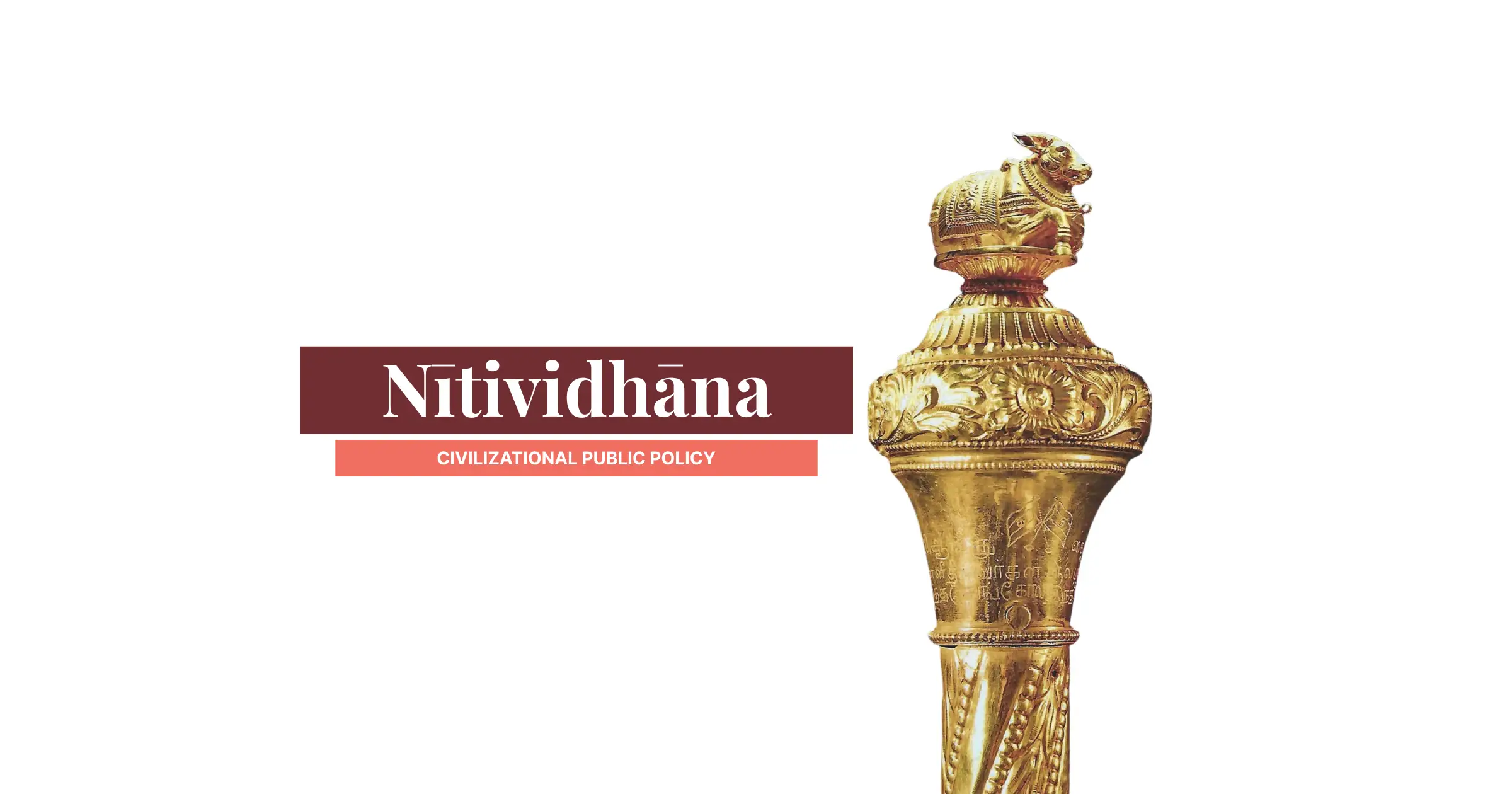
Nītividhāna introduces Public Policy with a focus on Indian Knowledge Systems and their
relevance to modern governance. The program explores key philosophical ideas from both
Eastern and Western traditions, showing how these ideas have shaped public policy over
time. By connecting ancient wisdom with today's challenges, the program prepares
participants to influence the future of governance.
The program facilitates an
inside-out perspective to leadership wherein learners begin to understand themselves
better through the lens of Āyurveda and psychology-based tools developed based on Indian
epics. The course is built on the foundational principles of Dharma and Dhārmika
frameworks, with a focus on translating this wisdom into contemporary public policy and
statecraft.
The challenges we face today—divisiveness, economic disparity, social injustice, mental
health crises, poverty, and environmental degradation—are often treated as separate
issues. These interconnected problems arise from a lack of integrality in governance,
where fragmented policies fail to address the root causes, resulting in incomplete and
ineffective solutions. This is why the need for a civilizational approach to public policy
is more urgent than ever.
The course goes beyond theoretical knowledge,
incorporating foundational concepts from Dharma and the Arthaśāstra to provide a nuanced
understanding of governance from an Indic perspective. It also offers Indic views on World
Civilizations, basic Public Policy concepts, and includes Policy-writing and analysis
sessions. Moreover, with specialized modules in Education, Health, Environment, and
Technology, the program offers practical insights into how these principles can be applied
to create comprehensive, sustainable solutions.
who is the program for
Young Policy Professionals
Civil Service Aspirants
Researchers, Educators, and Civil Society Leaders
Academicians and Think Tank Professionals
Indic Knowledge Seekers and Spiritual-political Thinkers
course takeaways
Discover Civilizational Thought Models
Develop Critical Reasoning
Understand Policy in Praxis
Evolve Policy Acumen
Opportunity to Publish an Academic Paper
course highlights
Exploration of Indian Perspectives on World Civilizations
Foundational understanding on Indian Perspective on Leadership, Environment and Society
Theory and Practice of Dharma in Governance and Constitution
Policy Writing Workshops and Synthesis Sessions
Field Orientation Modules in Education, Health and Environment
testimonials
I would like to thank all the honorable speakers for sharing their wisdom and providing us with a lot of fodder to work in the future. The simplicity of the concepts and their explanations were outstanding….. For me personally, there has been a plethora of learnings across various aspects, right from the Indic Knowledge Systems to Policy areas. Most important learning has been the practical implementation of the same where we were apprised with how to fit in the policy paradigm and formulation within the Indic construct because this is the ultimate objective of Nītividhāna. Lastly, I would also appreciate and express my gratitude to the cohort as I learnt something or the other from everyone. Moreover, everyone was so cooperative and humble so it was an amazing experience altogether.
Utkarsh Tandon
I want to say that this is completely a new domain of study for me. I joined this course with much skepticism thinking how can I contribute to this. But after attending this session I have come to realize that for me this is going to be a wonderful experience. It was an amazement to me how ayurvedic science is connected with leadership traits and vice versa. This is something which I can apply in workplace and bring a new perspective there. The whole session set a good tone for me and my expectation has only increased from the whole course.
Tarun Sharma
The fundamental differences between western and Indian Knowledge systems was explained very systematically and was indeed an eye-opener. Shri Indradeep Ghosh's arguments seeped in the complicated economic model was very dense, while Raghava Krishna ji, as usual, left us with many inter-connected ideas to ponder upon.
Komal Agarwal
The sessions were incredibly interactive, filled with valuable information delivered concisely. Mala Ma’am, the teacher, exuded kindness and a wealth of knowledge. Every segment of the class was both helpful and enlightening.
Sushanth Harsha Rao
Excellent session with practical insights to practice IKS philosophy and Dharma at individual level. Constitutional alignment with Dharma were discussed well.
Krishna Tumu
I benefitted from the questions raised on the basis/principles/assumptions of "western/modern" economic models.
Vasundhara
nitividhana editions